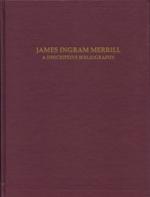|
This section contains 8,051 words (approx. 27 pages at 300 words per page) |

|
SOURCE: “James Merrill: Revealing by Obscuring,” in Contemporary Literature, Vol. XXI, No. 4, Autumn, 1980, 549-71.
In the following essay, Hallberg maintains that Merrill's work features an ironic criticism of the conventions of confessional poetry, and instead prefers evasion and secrecy.
Too much understanding petrifies.
“From the Cupola”1
The term “confessional poetry” has earned widespread skepticism: as a generic term, it is mainly misleading.2 Yet it would be hard to trace the development of recent American poetry without reference to the influence of Allen Ginsberg's Howl (1956), Robert Lowell's Life Studies (1959), W. D. Snodgrass' Heart's Needle (1960), and the poems collected in Sylvia Plath's Ariel (1966). Whatever claims may be made on behalf of “confessional poetry,” it is plain that these books all contributed to the reinstatement of two closely related literary conventions: the notion that poems originate in their subject matter, and the corollary that poets mean, at least literally, what they...
|
This section contains 8,051 words (approx. 27 pages at 300 words per page) |

|


